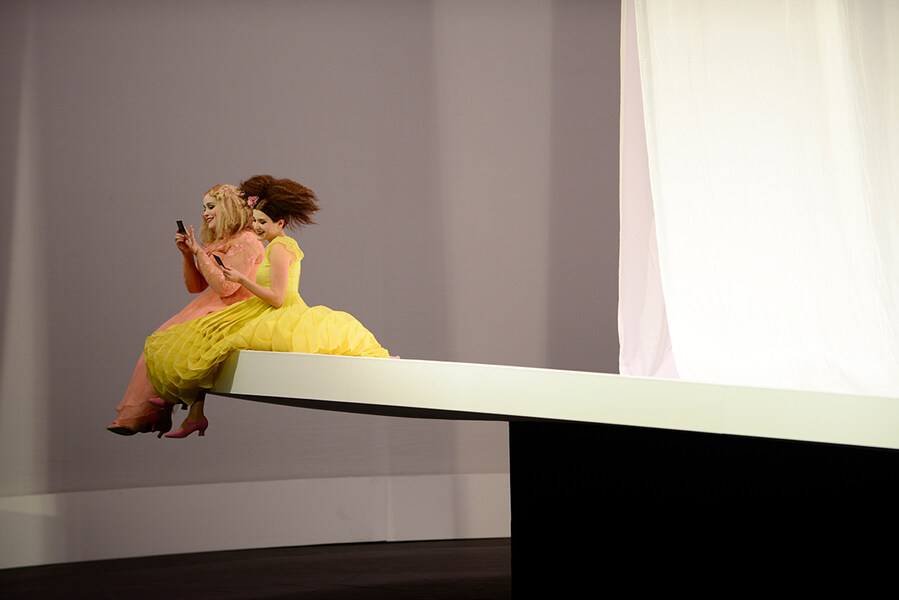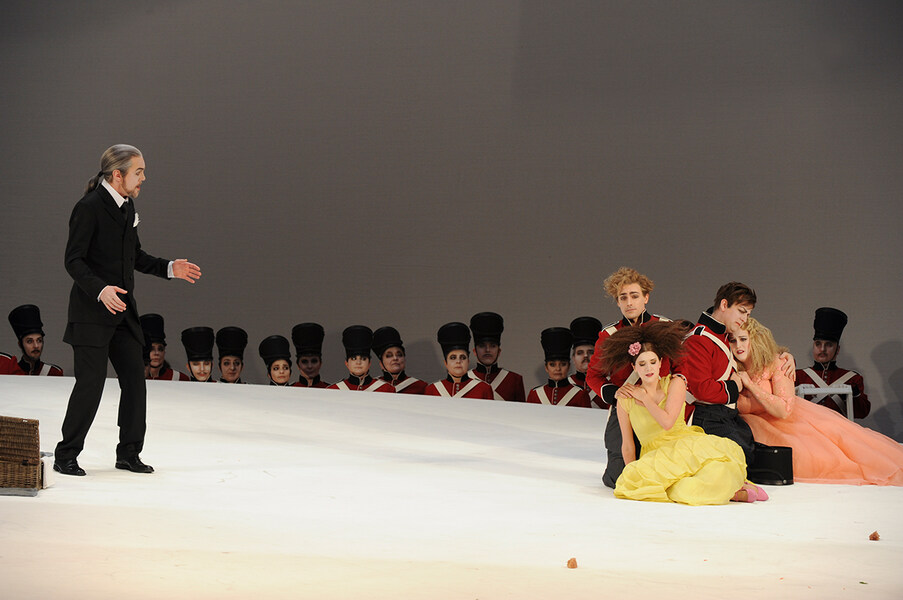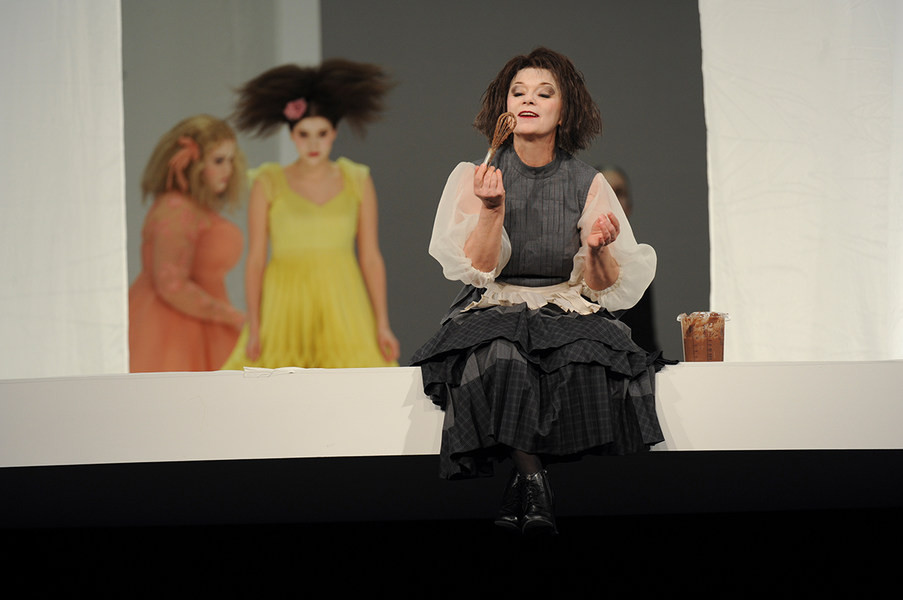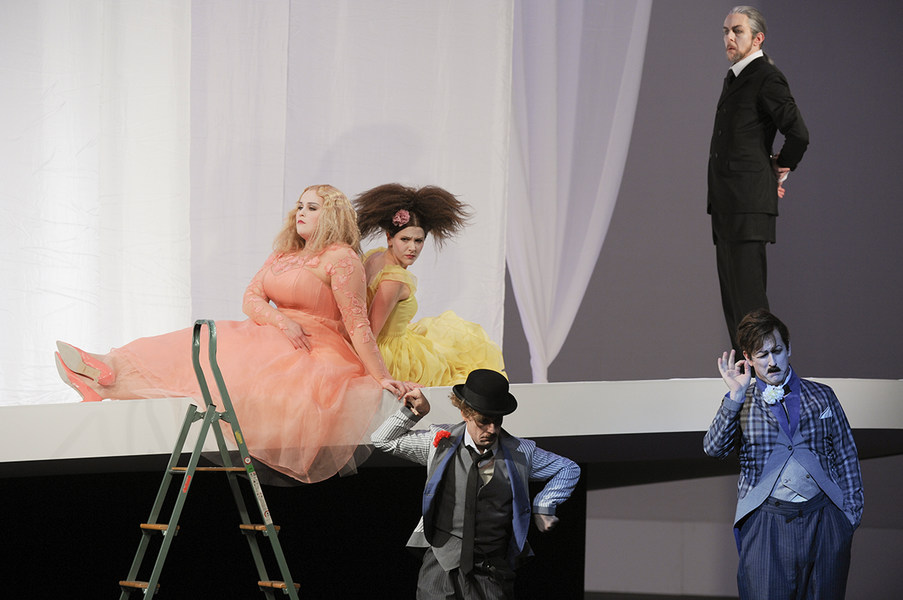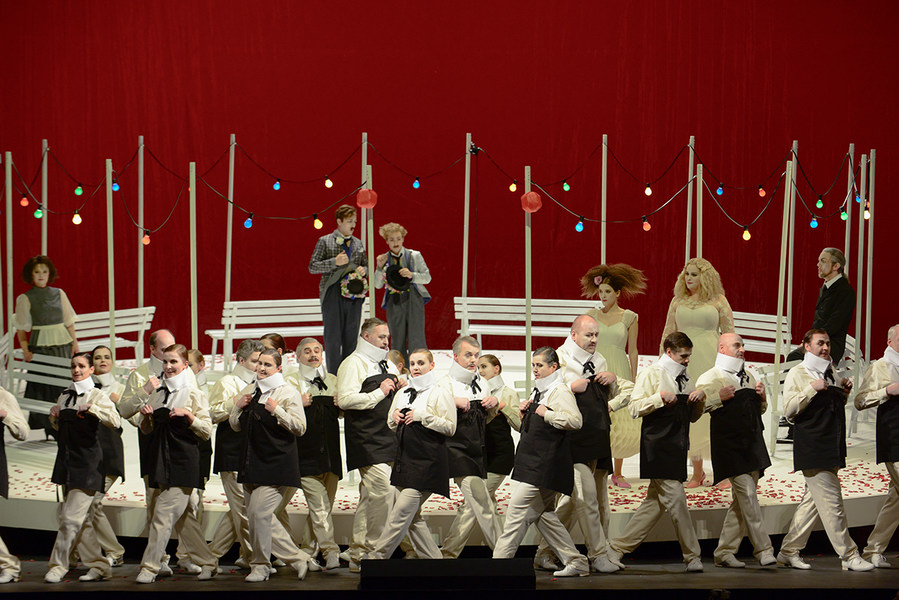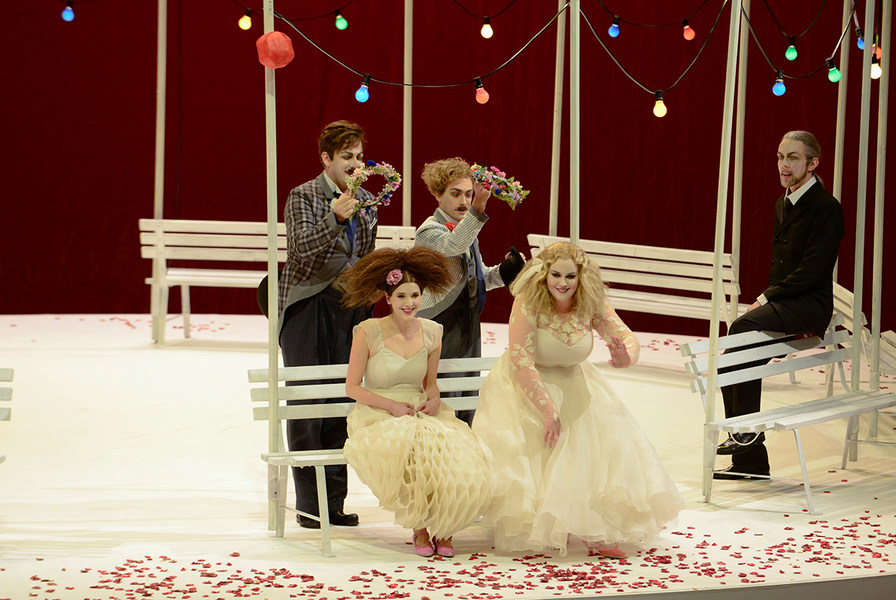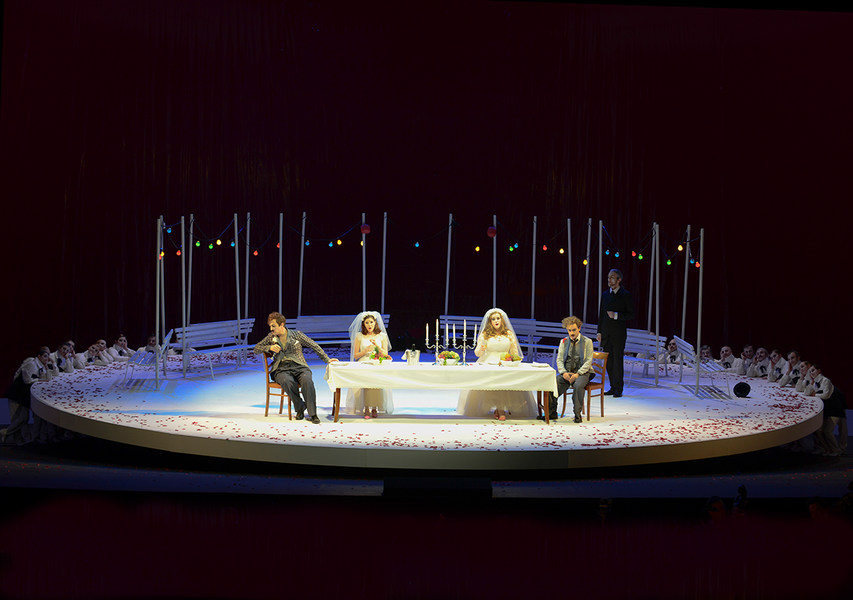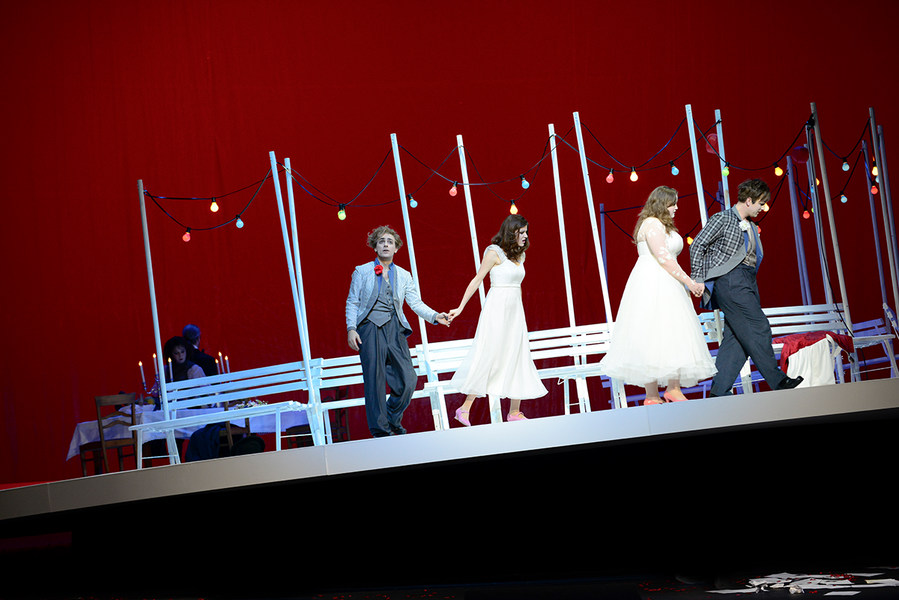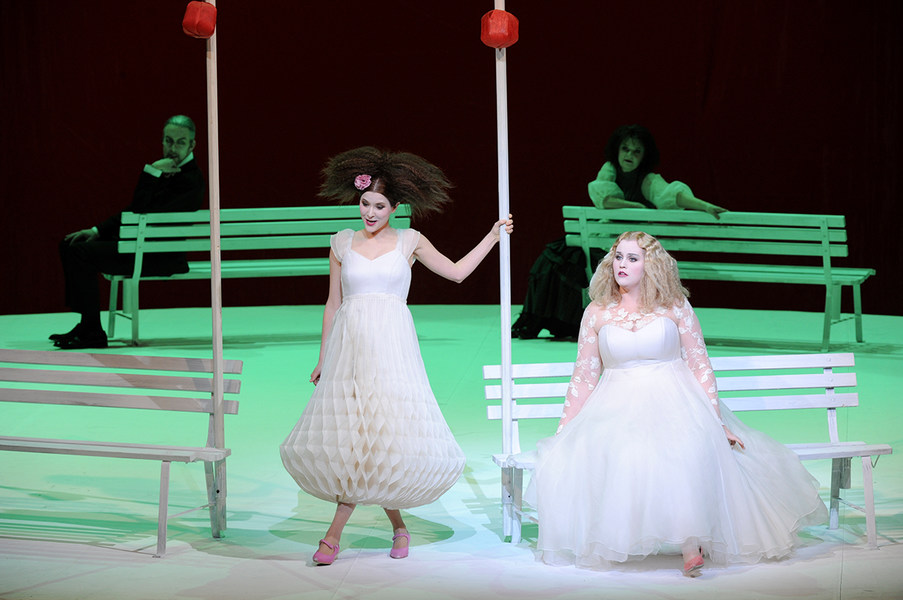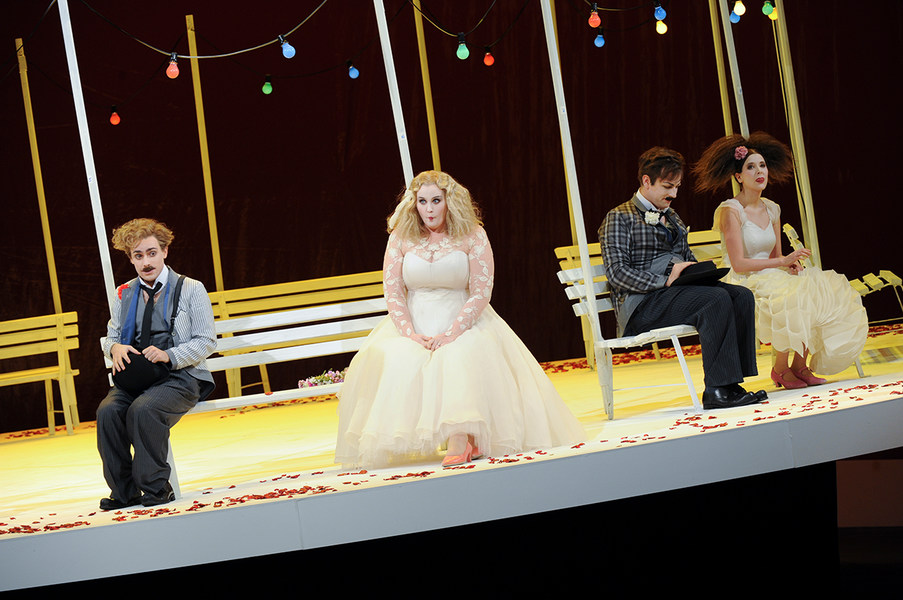Dramma giocoso in two acts
Libretto by Lorenzo Da Ponte
Performed in Italian with German and English supertitles
Premiere
22. March 2014,
No further performances in the current season.
Explore
Stücktrailer
Così fan tutte
Così fan tutte (All women do it) – Don Alfonso assures his friends Ferrando and Guglielmo that he can prove to them that their fiancées Dorabella and Fiordiligi will be unfaithful just as soon as they see an opportunity. The young men are so certain of the hearts and loyalty of their lovers that they accept wager. In disguise, they attempt to seduce the young women. As things are about to turn nasty, the couples decide to forgive and forget. Wolfgang Amadeus Mozart and his librettist Lorenzo da Ponte gave the work the subtitle The School for Lovers to highlight the enlightening qualities of Così fan tutte. Following the premiere in Vienna in 1790, the opera was frequently attacked for its perceived vulgarity. This ambiguity and the wittily precise dissection of the confused hearts of young lovers is also characteristic of the light-footed production by Andreas Kriegenburg, who enthusiastically borrows from the aesthetics of slapstick from the Silent Age of moviemaking.
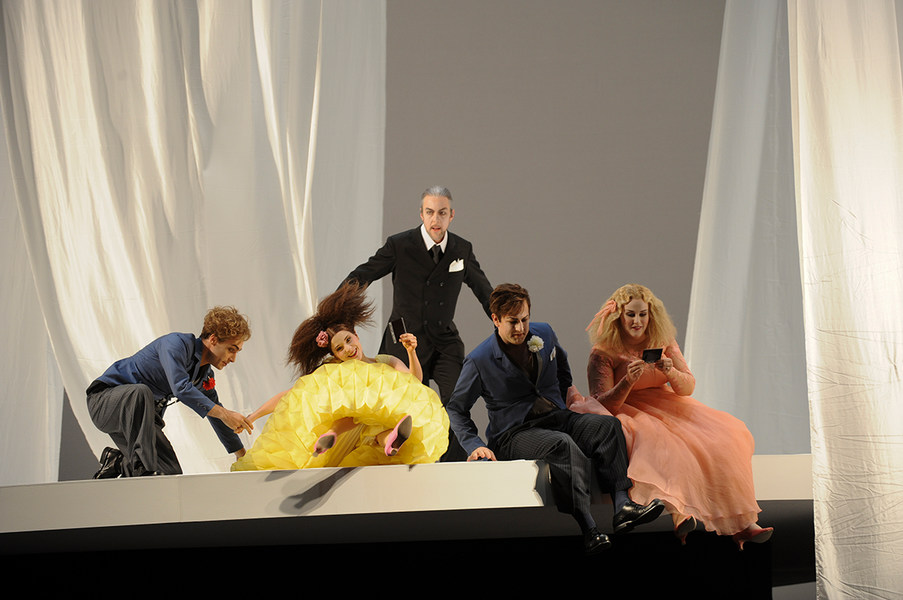
Gallery
